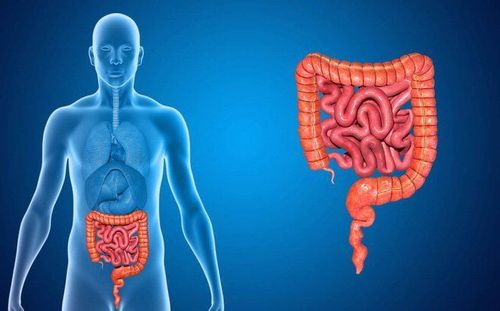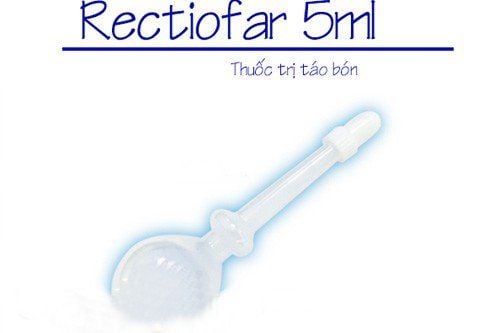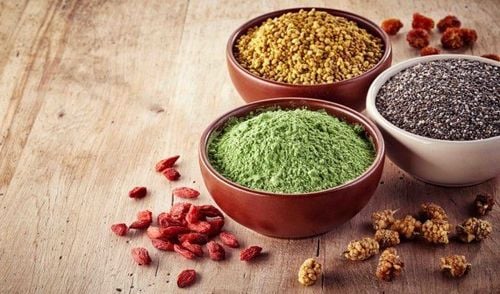This is an automatically translated article.
The article was professionally consulted with Master, Doctor Nguyen Tung Hoanh- Department of Resuscitation - Emergency - Vinmec Nha Trang International General Hospital.Two types of fiber that nutritionists recommend focusing on eating more are soluble fiber and insoluble fiber. Soluble fiber can increase the amount of beneficial bacteria in the gut, help strengthen the immune system, fight inflammation, and even improve mood. Insoluble fiber will not be broken down by gut bacteria and will not be absorbed into the bloodstream.
1. How is soluble fiber different from insoluble fiber?
1.1 Insoluble fiber This is the type of fiber that people often think of as “raw food”. Fiber is the hard substance found in nuts, whole grains, fruits and vegetables (especially in seeds, skins and stems). As the name implies, this type of fiber will not dissolve in water.Insoluble fiber will not be broken down by intestinal bacteria and will not be absorbed into the bloodstream. Instead, insoluble fiber will contribute to increasing the volume of excess products in the digestive system, helping you to have regular bowel movements and prevent constipation (as well as the diseases that come with apples). constipation, such as hemorrhoids).
1.2 Soluble Fiber Soluble fiber is sticky and soft, can absorb water and become a gel-like substance on the inside of the digestive tract. Food sources of soluble fiber include legumes, oats, barley, fruit, and avocados.
Soluble fiber also helps soften stools, so that stools can move through the digestive tract more easily. Soluble fiber also binds other substances such as sugar and cholesterol, helping to prevent or slow the absorption of these substances into the bloodstream. This is why soluble fiber can help regulate blood sugar and protect you from heart disease by lowering blood cholesterol. In addition, soluble fiber can increase the amount of beneficial bacteria in the intestines, help strengthen the immune system, fight inflammation, and even improve emotions.
In addition, soluble fiber also helps you lose weight. For those who are new to weight loss, soluble fiber helps you feel full for longer, which in turn helps you reduce cravings and better control your weight. According to one study, eating an extra 10g of soluble fiber per day reduced belly fat by about 4% over a 5-year period.
2. Where is soluble fiber found?
Here are some foods that are high in soluble fiber:Oats Carrots Barley psyllium peas Beans Apples Oranges, tangerines
3. Health benefits of soluble fiber

Chất xơ hòa tan góp phần bảo vệ tim mạch
3.1 Protects the heart In your digestive system, soluble fibers will adhere to cholesterol particles, thereby helping you to excrete cholesterol through the digestive tract. As a result, the amount of cholesterol in the body will be significantly reduced, helping to protect your heart from health problems caused by cholesterol.
Among foods, oatmeal is said to be one of the best foods in terms of protecting heart health.
3.2 Reduce the risk of diabetes The body cannot fully absorb fiber, including soluble fiber, so consuming foods containing fiber will not raise blood sugar levels in the body friend. As a result, you will reduce your risk of diabetes or even heart disease.
Moreover, if you are a patient of diabetes, regardless of type 1 or type 2, consuming soluble fiber can also help you control the disease and your medical condition better.
3.3 Weight loss and weight maintenance Soluble fiber also helps you lose weight, maintain a stable and healthy weight. The fiber will help slow down the digestive process, besides, you can't absorb fiber, so you will feel full longer and reduce the amount of food consumed each day. From there, the amount of calories you take in will be less, making it easier for you to achieve the desired weight.
3.4 Easier Digestion Soluble fiber draws water in your intestines, making it easier for waste products in your digestive tract to form. Besides, it also helps fight diseases like constipation and diarrhea.

Chất xơ còn giúp chống lại các chứng bệnh như bệnh táo bón và tiêu chảy
4. Which soluble fiber is good for babies?
Nowadays, constipation is quite common in children. When your baby is constipated, it is very necessary to add fiber to the baby, especially soluble fiber. So how to supplement with fiber for babies and which soluble fiber is good for babies?Mothers can supplement soluble fiber for their babies by giving them the habit of eating lots of vegetables and fruits every day. Foods rich in soluble fiber that are good for babies are bananas, avocados, white rice, carrots, oatmeal, peas, almonds, broccoli, spinach, spinach, pears, apples. .. Besides, mothers can supplement fiber for babies with products containing soluble fiber. And better yet, mothers should choose products that contain both soluble fiber (Prebiotic) and beneficial bacteria (Probiotics) to help the baby's digestive system work better, prevent and treat constipation. Two types of soluble fiber are used a lot in products to prevent constipation today, which is Inulin and FOS
Inulin is one of the soluble fibers used most by nutritionists for children. Inulin is abundant in onions, garlic, artichokes, bananas, especially in chicory roots. Inulin is not digested in the stomach, small intestine, is a food for beneficial bacteria, helps the intestinal microflora of children better. In addition, in the process of fermentation of Inulin by beneficial bacteria, gases and fatty acids are produced, which help increase intestinal motility, increase stool movement in the intestines, help children have better bowel movements, and prevent constipation for children. when the child's diet lacks fiber.
FOS is the abbreviation of active ingredient Fructose oligosaccharide which is a soluble fiber found in many fruits and vegetables such as: Banana, artichoke, chicory and chicory root... Recent studies also show that FOS is a naturally occurring sugar that is easily fermentable, helping to maintain the balance of beneficial bacteria in the gut.
FOS also relieves constipation by stimulating bowel movements and increasing stool softness, while improving digestive health for children.
In current medicine, there are a number of preparations that combine both Inulin and FOS in the composition with a ratio of 1:1. This will help maximize the use of these two types of fiber in preventing constipation, helping children to have regular and easy bowel movements, and more beautiful stools. In addition, it has an additional advantage of helping to increase calcium absorption, helping children develop comprehensively.
Therefore, when choosing a soluble fiber supplement for your baby, you need to pay attention to the ingredients to choose the best product.
Please dial HOTLINE for more information or register for an appointment HERE. Download MyVinmec app to make appointments faster and to manage your bookings easily.













